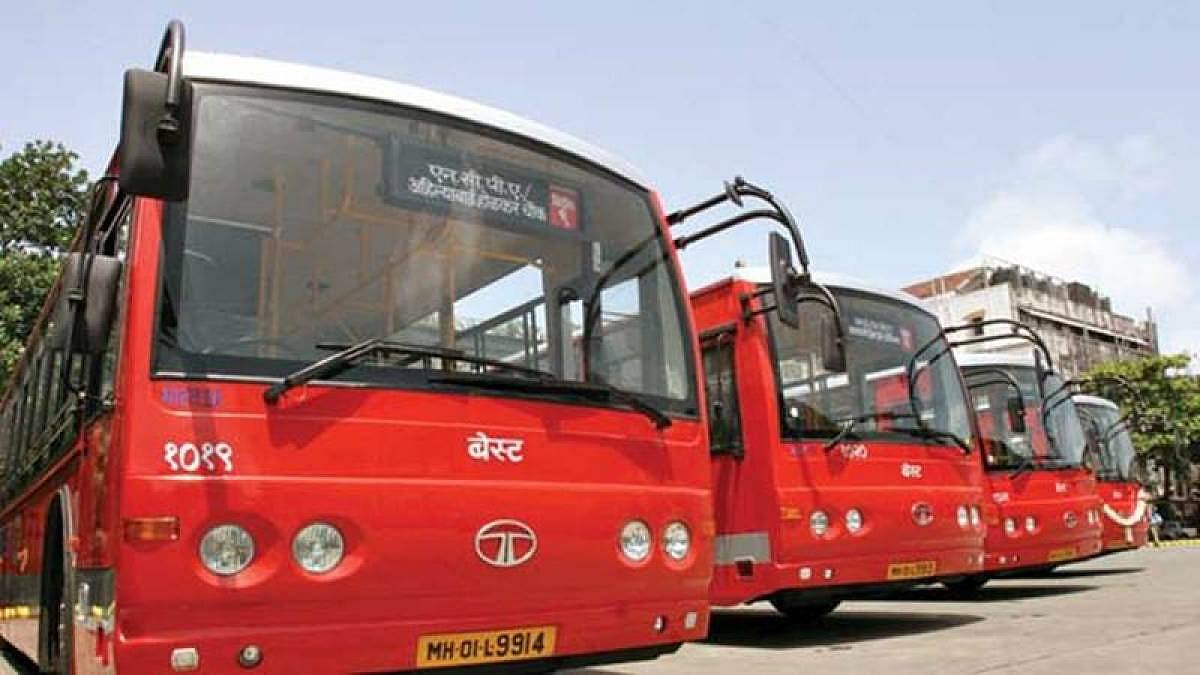BMC approves fare hike for BEST buses, doubling minimum fare to ₹10 amid financial struggles | Photo: Representative Image
Mumbai: In a move that will directly impact over 31 lakh daily commuters, the BMC has approved a proposal for a sharp fare hike recently for bus services operated by Brihanmumbai Electric Supply and Transport (BEST) undertaking in the city. As per the proposal, the minimum fare of BEST buses will be doubled.
The decision, which aims to revive the financially troubled public transport service, has been approved by the Municipal Corporation and is now awaiting final clearance from the competent authority of the state government.
Municipal Commissioner Dr. Bhushan Gagrani confirmed the development in a statement to FPJ, noting that the fare hike was unavoidable given the grim financial condition of the undertaking. Once implemented, the minimum fare for non-AC buses will rise from Rs 5 to Rs 10, while AC bus fares will start at Rs 12 instead of Rs 6.
Monthly and weekly passes have also seen substantial hikes. A 5 km non-AC monthly pass will now cost Rs 800, up from Rs 450, while its AC counterpart will jump from Rs 600 to Rs 1,100. For a 20 km commute, the non-AC pass will cost Rs 2,600, up from Rs 2,200, and the AC pass will soar to Rs 3,500 from Rs 2,700.
BEST, which has received over Rs 11,000 crore in subsidies from the Mumbai civic body over the past decade, has long struggled with mounting losses. With the BMC citing its own budgetary constraints, further financial bailouts were ruled out, leaving fare hikes as the only viable path forward.
While officials argue that the increase is crucial to modernize and sustain the city’s bus network, the announcement has sparked concern among commuters. Many fear that the higher fares will deter daily ridership, especially for lower-income groups already battling inflation and high living costs.
Commuter associations and citizen groups have urged the authorities to reconsider fare hike proposal, warning that the move could push more people towards overcrowded trains or private vehicles—exacerbating traffic and pollution issues across Mumbai. Apart from that, several political parties are also opposing the move, including Sena (UBT) and NCP (SP), and have declared that if fare increase, they will strongly oppose it.
The proposed fare structure includes sharp increases across all distance slabs:
Non-AC Bus Fares:
Up to 5 km: Rs 5 → Rs 10
5–10 km: Rs 10 → Rs 15
10–15 km: Rs 15 → Rs 20
15–20 km: Rs 20 → Rs 30
20–25 km: Rs 20 → Rs 35
AC Bus Fares:
Up to 5 km: Rs 6 → Rs 12
5–10 km: Rs 13 → Rs 20
10–15 km: Rs 19 → Rs 30
15–20 km: Rs 25 → Rs 35
20–25 km: Rs 25 → Rs 40
Proposed Monthly Pass Rates:
Non-AC:
5 km: Rs 450 → Rs 800
10 km: Rs 1,000 → Rs 1,250
20 km: Rs 2,200 → Rs 2,600
Proposed Monthly Pass Rates:
AC:
5 km: Rs 600 → Rs 1,100
10 km: Rs 1,400 → Rs 1,700
20 km: Rs 2,700 → Rs 3,500
Proposed Weekly Pass Rates:
5 km: Rs 70 → Rs 140
10 km: Rs 175 → Rs 210
15 km: Rs 265 → Rs 280
20 km: Rs 350 → Rs 420
